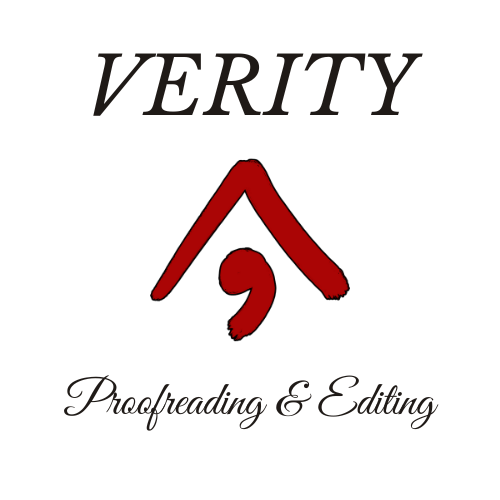 Every author has habits—certain words that sneak into drafts over and over again. While these overused words in writing aren’t “wrong,” they can weaken your writing when they show up too often. The good news? Once you learn to recognize them, you can swap them for stronger alternatives that make your prose shine.
Every author has habits—certain words that sneak into drafts over and over again. While these overused words in writing aren’t “wrong,” they can weaken your writing when they show up too often. The good news? Once you learn to recognize them, you can swap them for stronger alternatives that make your prose shine.
At Verity Proofreading & Editing, we help authors strengthen their manuscripts every day. One of the fastest—and free—ways to level up your writing is to tackle overused words head-on.
Why Overused Words in Writing Weaken Your Voice
Overused words act like filler: they don’t ruin your book, but they water down your sentences and make your writing less engaging. According to the Purdue Online Writing Lab (OWL), clarity and precision are key to strong writing.
- They make writing predictable. If every intense moment is described as “sudden” or “very,” readers stop feeling the impact.
- They reduce clarity. Words like “things” or “stuff” are vague, leaving readers guessing instead of painting a clear picture.
- They weaken emotion. Instead of being “very sad,” a character could be “heartbroken”—which conveys far more depth.
By cutting down on these repetitive words, you immediately make your writing sharper, more precise, and more enjoyable for readers.
Top 10 Overused Words in Writing (With Examples)
Here are ten of the most common overused words and better alternatives you can use to elevate your work.
1. Very
“Very” rarely adds value. Replace it with a stronger adjective.
- Instead of: very big → Try: enormous, colossal
- Instead of: very happy → Try: ecstatic, overjoyed
2. Really
Words like “very” and “really” weaken your message. For more ideas on stronger alternatives, check out Grammarly’s guide to overused words.
- Instead of: really good → Try: excellent, outstanding
- Instead of: really important → Try: crucial, essential
3. Just
Often filler, “just” can make sentences feel uncertain.
- Instead of: I just wanted to say… → Try: I wanted to say…
- Instead of: He just stood there. → Try: He stood there.
4. That
Necessary at times, but frequently overused.
- Instead of: I think that he is right. → Try: I think he is right.
- Instead of: The book that I read was interesting. → Try: The book I read was interesting.
5. Things
Vague and unspecific—better to be precise.
- Instead of: I have a lot of things to do. → Try: I have a long to-do list.
- Instead of: He collected interesting things. → Try: He collected rare artifacts.
6. Stuff
Similar to “things,” it makes writing sound lazy.
- Instead of: Put your stuff away. → Try: Put your belongings away.
- Instead of: I need to buy some stuff. → Try: I need to buy supplies.
7. Got
A catch-all verb that can usually be replaced with something stronger.
- Instead of: I got a letter. → Try: I received a letter.
- Instead of: I got it. → Try: I understand.
8. Started
Often adds unnecessary words—go straight to the action.
- Instead of: He started to run. → Try: He sprinted.
- Instead of: The rain started to fall. → Try: The rain poured.
 9. Look
9. Look
Overused in description—variety makes writing more vivid.
- Instead of: He looked at the sky. → Try: He gazed at the sky.
- Instead of: She looked angry. → Try: Her face contorted with anger.
10. Suddenly
Can make writing predictable when used too often.
- Instead of: Suddenly, the door opened. → Try: The door burst open.
- Instead of: Suddenly, she realized the truth. → Try: The truth hit her.
Strategies to Avoid Overused Words
Now that you know what to watch for, here are some free ways to catch and replace these words:
- Read your manuscript aloud. If you trip over repetitive words, your readers will too.
- Use Find & Replace. Use Find & Replace to search your draft for words like “that” or “just.” You can also try free tools like the Hemingway Editor to spot wordiness and repetition.
- Focus on one issue per revision pass. For example, do one read-through just for filler words.
- Get feedback. Beta readers or writing partners can often spot repetition faster than you can.
- Be intentional. Don’t aim to erase these words completely—just use them with purpose.
Why Professional Editing Helps With Word Choice
Free self-polishing can take your manuscript a long way. But professional editing digs deeper. An experienced editor doesn’t just highlight overused words—they look at flow, pacing, voice, and consistency across the entire manuscript.
At Verity Proofreading & Editing, we offer both editing and proofreading services to help authors strengthen their work before publishing. To make it easy, your first 3,000 words or first chapter are free—so you can see how professional editing improves your writing without risk.
Conclusion
Overused words are part of every writer’s draft—but they don’t have to make it into your final book. By recognizing common culprits and practicing mindful revision, you’ll sharpen your prose, engage readers, and elevate your writing.
When you’re ready to take your manuscript further, let Verity Proofreading & Editing help you polish your work to perfection.
📚 Start with your free 3,000 words today at VerityProofreading.com.

